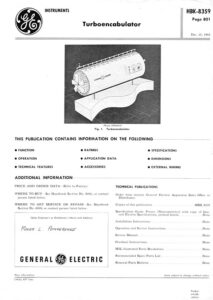“The Lord is not slow concerning his promise, as some regard slowness, but is being patient toward you, because he does not wish for any to perish but for all to come to repentance” (2 Peter 3:9 NET).
We can work through several challenging aspects of this passage with the help of various commentators. Our first source sets an appropriate foundation for our look at this verse…
“[The Lord] can’t be waiting for everyone to be saved, since the emphasis is that He will destroy the world and the ungodly. Those who do perish and go to hell, go because they are depraved and worthy only of hell and have rejected the only remedy, Jesus Christ, not because they were created for hell and predetermined to go there. The path to damnation is the path of a non-repentant heart; it is the path of one who rejects the person and provision of Jesus Christ and holds on to sin (cf. Is 55:1; Jer 13:17; Eze 18:32; Mt 11:28; 23:37; Lk 13:3; Jn 3:16; 8:21, 24; 1Ti 2:3, 4; Rev 22:17).” (1)
Another commentary directs our attention to the tension between God’s desire (or His desiderative will), and what He decrees (or His decretive will)…
“Unless God’s will is viewed on the two planes of his desiderative and decretive will (what he desires and what he decrees), hopeless confusion will result. The scriptures amply illustrate both that God sometimes decrees things that he does not desire and desires things that he does not decree. It is not that his will can be thwarted, nor that he has limited his sovereignty. But the mystery of God’s dealings with humanity is best seen if this tension is preserved. Otherwise, either God will be perceived as good but impotent or as a sovereign taskmaster. Here the idea that God does not wish for any to perish speaks only of God’s desiderative will, without comment on his decretive will.” (2)
Our final commentator addresses this reference to “those who perish” in response to an age-old question: “How can a good God send people to hell?”
“This question assumes that God sends people to hell against their will. But this is not the case. God desires everyone to be saved (see 2 Peter 3:9). Those who are not saved do not will to be saved. Jesus said, ‘O Jerusalem, Jerusalem, you who kill the prophets and stone those sent to you, how often I have longed to gather your children together, as a hen gathers her chicks under her wings, but you were not willing’ (Matthew 23:37). As C. S. Lewis put it, ‘The door of hell is locked on the inside.’ All who go there choose to do so. Lewis added: ‘There are only two kinds of people in the end: those who say to God, ‘Thy will be done,’ and those to whom God says, in the end,’ Thy will be done.’ All that are in hell, choose it.'” (3)
(1) John F. MacArthur Jr., The MacArthur Study Bible: New American Standard Bible. (Nashville, TN: Thomas Nelson Publishers, 2006), 2 Pe 3:9.
(2) NET Bible notes on 2 Peter 3:9 https://netbible.org/bible/2+Peter+3
(3) Zacharias, R., & Geisler, N. L. (2003). Who Made God?: And Answers to Over 100 Other Tough Questions of Faith. Zondervan. [pg. 30]

 For instance, we can kill time, buy time, or pass the time. Musicians keep time and athletes call time out. Some have time on their hands, while others never seem to have enough. Employees and others can spend time or steal time. Time can be free or expensive, good or bad, wasted or invested, and lost or found. So we can view time in different ways, but what is it?
For instance, we can kill time, buy time, or pass the time. Musicians keep time and athletes call time out. Some have time on their hands, while others never seem to have enough. Employees and others can spend time or steal time. Time can be free or expensive, good or bad, wasted or invested, and lost or found. So we can view time in different ways, but what is it? Nevertheless, that sustaining effort will continue only as long as God sees fit. When God ceases to maintain the current form of the heavens and earth, He will use fire as His chosen element of dissolution. This imagery should be familiar to readers of the Old and New Testaments alike. For example, the book of the Old Testament prophet Nahum alludes to the fiery presence of God…
Nevertheless, that sustaining effort will continue only as long as God sees fit. When God ceases to maintain the current form of the heavens and earth, He will use fire as His chosen element of dissolution. This imagery should be familiar to readers of the Old and New Testaments alike. For example, the book of the Old Testament prophet Nahum alludes to the fiery presence of God… This also corresponds to what we read later in Genesis 7:10-12. That portion of Scripture tells us “…all the underground waters erupted from the earth” (NLT) at the time of Noah’s flood. The sudden emergence of those underground pockets of water would have led to the catastrophic results associated with the flood.
This also corresponds to what we read later in Genesis 7:10-12. That portion of Scripture tells us “…all the underground waters erupted from the earth” (NLT) at the time of Noah’s flood. The sudden emergence of those underground pockets of water would have led to the catastrophic results associated with the flood. For instance, many believe that the universe came into existence through an arbitrary process. This idea suggests that the universe could have formed by chance if given a sufficient amount of time. But let’s consider this premise for a moment. In this context, the word “chance” conveys the statistical probability that something will occur. However, this explanation fails if we apply it to the notion that the universe came into existence through random chance.
For instance, many believe that the universe came into existence through an arbitrary process. This idea suggests that the universe could have formed by chance if given a sufficient amount of time. But let’s consider this premise for a moment. In this context, the word “chance” conveys the statistical probability that something will occur. However, this explanation fails if we apply it to the notion that the universe came into existence through random chance. The assertion that “the world remains unchanged” here in 2 Peter 3:4 predates a contemporary theory regarding the processes that have helped shape our present world. That theory asserts that “the present is the key to the past.” The following commentators discuss its relevance to our text from this passage…
The assertion that “the world remains unchanged” here in 2 Peter 3:4 predates a contemporary theory regarding the processes that have helped shape our present world. That theory asserts that “the present is the key to the past.” The following commentators discuss its relevance to our text from this passage… The “fathers” mentioned here in 2 Peter 3:4 likely allude to the ancestral generations of many years ago. The idea is that the circle of life begins at conception and ends at death. While civilizations, technologies, and individual lives come and go, the treadmill of life goes on, according to this perspective.
The “fathers” mentioned here in 2 Peter 3:4 likely allude to the ancestral generations of many years ago. The idea is that the circle of life begins at conception and ends at death. While civilizations, technologies, and individual lives come and go, the treadmill of life goes on, according to this perspective. This characteristic is also associated with the act of “walking” in our text from 2 Peter 3:3. “Walking” is a Biblical idiom that refers to our conduct, disposition, and/or manner of life. 2 Corinthians 5:7 employs this idea in a positive sense when it tells us that God’s people are those who “…walk by faith, not by sight.” We find a similar example in Colossians 2:6: “As you therefore have received Christ Jesus the Lord, so walk in Him.”
This characteristic is also associated with the act of “walking” in our text from 2 Peter 3:3. “Walking” is a Biblical idiom that refers to our conduct, disposition, and/or manner of life. 2 Corinthians 5:7 employs this idea in a positive sense when it tells us that God’s people are those who “…walk by faith, not by sight.” We find a similar example in Colossians 2:6: “As you therefore have received Christ Jesus the Lord, so walk in Him.” In ancient times, an unethical merchant might seek to market a defective earthenware vessel to an unsuspecting customer. To accomplish this, a dishonest vendor would camouflage the damaged portion of a container by carefully applying a thin layer of wax. Once painted, the final product looked as if it was in perfect condition- until the purchaser attempted to fill it with water and subsequently discovered the truth.
In ancient times, an unethical merchant might seek to market a defective earthenware vessel to an unsuspecting customer. To accomplish this, a dishonest vendor would camouflage the damaged portion of a container by carefully applying a thin layer of wax. Once painted, the final product looked as if it was in perfect condition- until the purchaser attempted to fill it with water and subsequently discovered the truth. So, Peter’s intent in authoring this letter was not merely instructional, but to serve as a reminder for his readers to apply what they had already learned. In light of this, Peter endeavored to stir his audience to action. Much as a homeowner might stir up the coals in a fireplace to bring warmth and light to a home, Peter sought to ignite their desire to grasp Jesus’ teachings and act on them. The same holds true for contemporary readers of this epistle as we reflect on the teachings of the Scriptures and seek to put them into practice.
So, Peter’s intent in authoring this letter was not merely instructional, but to serve as a reminder for his readers to apply what they had already learned. In light of this, Peter endeavored to stir his audience to action. Much as a homeowner might stir up the coals in a fireplace to bring warmth and light to a home, Peter sought to ignite their desire to grasp Jesus’ teachings and act on them. The same holds true for contemporary readers of this epistle as we reflect on the teachings of the Scriptures and seek to put them into practice.